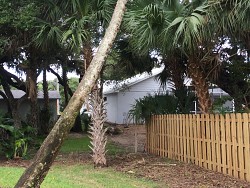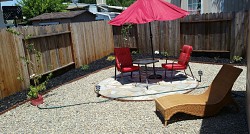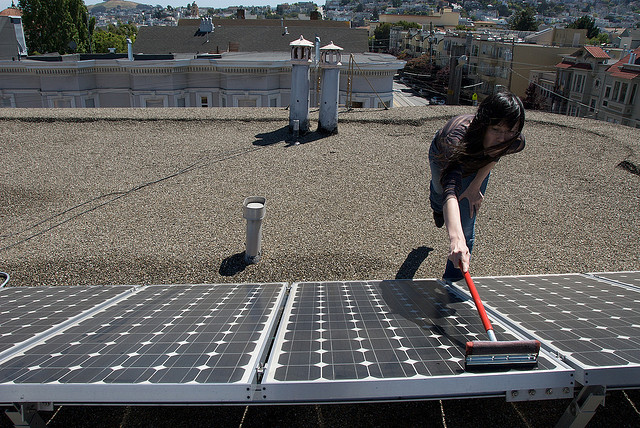8 Burning Questions about Solar Panels
Q. How can the solar panel manufacturing process be greened?
A. The basic function of solar panels -- collection of light energy from the sun in the form of photons and conversion of this energy to electric power -- is environmentally clean. However before they are used, solar panels must be produced and transported; both of these latter processes require greenhouse gas-emitting fossil fuels. In addition, during manufacture the semi-conductors are cleaned using hazardous, often caustic, substances such as acetone, hydrochloric acid, hydrogen fluoride, methyl chloroform, nitric acid, and sulfuric acid. A manufacturing byproduct, silicon dust, can cause respiratory problems in solar panel plant workers.
Q. What is the optimal life expectancy of solar panels?
A. Panels currently on the market typically are sold with a 20-25 year warranty. Although they may indeed last for the full warranty period, solar panels tend to degrade over the years, to the point where they may be operating at only 80 percent capacity before the warranty expires. At the same time, more efficient, money-saving panels may be developed, rendering the older models obsolete before the end of their predicted lifespan.
Q. Do solar panels require maintenance?
A.The panels will not work as effectively if they are covered with dirt, dust, dead leaves, or bird droppings. You'll have to inspect your solar installation at least once a year to see whether it needs cleaning. If so, simply rinse off the panels with your garden hose. Because hot panels can be cracked if they come into contact with cold water, hose them down during the cooler part of the day or evening. Rub with a squeegee for the most thorough cleaning.
Q. How are roof-mounted solar panels to be dealt with when the roof needs repair or replacement?
A. Removal and replacement of existing solar panels can cost about $4000-6000. This is an important point if you are considering mounting the panels on an aging roof.
Q. How will roof-mounted solar panels stand up to severe weather?
A. This subject is still under scrutiny. Scientific research is being performed, notably at Florida International University in the Atlantic Coast's hurricane zone.
Q. Are solar panels truly practical?
A. Installation of solar panels is pricey, averaging about $15,000-$30,000, and is best done by electricians experienced in this relatively new technology. The panels' efficiency in converting solar energy to electricity is only about 22-40 percent, meaning that a large number of panels is necessary to produce a significant amount of electrical power for your home. Until the cost to install solar panels decreases, you might choose to invest in greening your electrical consumption in other ways. To name a few examples, you could hang laundry to dry, improve your HVAC efficiency by insulation and repairing air leaks, or even move to a smaller home.
Q. What's the effect on neighborhoods?
A. Controversy has been stirred up in some locales where tall trees have been cut down in order to install solar panels. If you live in a historic home, local law most probably will prohibit you from setting up solar panels on your roof. What's more, Homeowners' Associations often oppose the panels on the grounds of aesthetics, fearing that the value of homes will be negatively affected. Although in many states, "solar access rights" legislation does not permit HOAs to ban them altogether, rules regarding solar panel installation and placement can still be strictly enforced.
Q. Where can old solar panels be recycled?
A. At present, there is a shortage of recycling facilities for panels which are no longer usable. Yet at the same time, construction of the panels requires rare or valuable metals such as indium, silver, or tellurium. Unless a workable recycling system is organized, a scarcity of these essential components may result.
Laura Firszt writes for networx.com.
Updated September 13, 2018.
Looking for a Pro? Call us (866) 441-6648

Electrical Average Costs
Electricians Experiences

Tree Removal And Backyard Cleanup Make A New House Feel Like Home

Yard Cleanup By A Local Landscaper Who Cares About Customers




